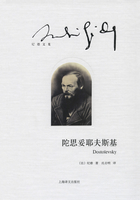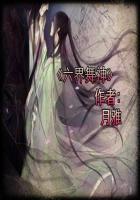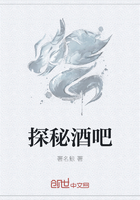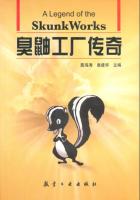All Paris was again in commotion, fear, and uproar. The furies of the revolution, the market-women, went howling again through the streets on the 20th of June, 1791, uttering their horrid curses upon the king and the Austrian woman, and hurling their savage words and dirty songs against Madame Veto, against la chienne d'Autriche.
Around the Tuileries stood in immense masses the corps of the National Guard, with grave and threatening mien, and with difficulty holding back the people, who were filling the whole broad square in front of the palace, and who could only with great effort be prevented from breaking through those strong cordons of guards who held both ends of the street leading to the Tuileries, and kept at least the middle of the way free and open.
It was a way for the king, the queen, and the royal family, who were to reenter Paris that day. Lafayette had, at the order of the National Assembly, gone with some regiments of the guard to Varennes, to conduct the king back to the capital. Thousands upon thousands had hurried out after him in order to observe this return of the representatives of monarchy, and to take part in this funeral procession!
For it was a funeral of the monarchy which was celebrated that day; and this great, heavy carriage, surrounded by soldiers, and the ribald, mocking populace--this great carriage, which now drove along the streets leading to the Tuileries, amid the thunder of cannon, and the peals of bells from towers, was the funeral car of monarchy.
The king, the queen, the royal children, the sister of the king, Madame Tourzel, and the two deputies whom the National Assembly had sent to Varennes to accompany the royal family, Petion and Barnave, were in this carriage.
They had tried to follow the advice of the dying Mirabean, and to save themselves from the revolution. That was the offence of this king and this queen, who were now brought back in triumph to the Tuileries, the palace of kings, and from that time a royal prison.
Tri-colored banners waved from all roofs and from all windows; placards were displayed everywhere, bearing in immense letters the words: "Whoever applauds the king shall be scourged; whover insults him shall be hanged!"
They had wished to escape, these unhappy ones, who are now brought back from Varennes, where they were identified and detained. Now they were returning, no longer the masters, but the prisoners of the French nation! The National Assembly had passed a decree, whose first article was: "The king is temporarily set aside from the functions of royalty;" and whose second and third articles were, "that so soon as the king and his family shall be brought back to the Tuileries, a provisional watch shall be set over him, as well as over the queen and the dauphin, which, under the command of the general-in-chief of the National Guard of Paris, shall be responsible for their safety and for their detention."
The king and the queen returned to Paris as prisoners, and Lafayette was their jailer. The master of France, the many-headed King of the French nation, was the National Assembly.
Sad, dreadful days of humiliation, of resignation, of perils and anxieties, now followed for the royal family, the prisoners of the Tuileries, who were watched day and night by spying eyes, and whose doors must remain open day and night, in order that officers on guard might look without hindrance into the apartments in which the prisoners of the French nation lived.
During the first week after the sad return, the spirit of the queen seemed to be broken, her energies to be impaired forever. She had no more hope, no more fear; she threw out no new plans for escaping, she neither worked nor wrote. She only sat still and sad for hours, and before her eyes passed the dreadful pictures of the time just gone by, presenting themselves with dreadful vividness, and in the recollection anguishing her spirit. She recalled the excitement and anxiety of the day which preceded the flight. She saw herself, as with trembling hands she put on the garments of one of her waiting-maids, and then disguised the dauphin in girl's clothes; she heard the boy asking anew, with his pleasant smile: "Are we going to play theatre, mamma queen?" Then she saw herself on the street alone, waiting without any protection or company for the carriage which was to take her up, after taking up at another place the king and the two children. She recalled the drive in the dark night, the heat in the close, heavy carriage, the dreadful alarm when suddenly, after a twelve hours' drive, the carriage broke, and all dismounted to climb the hill to the village which lay before them, and where they had to wait till the carriage could be repaired. Then the journey on, the delay in Varennea, the cry, "They are recognized." Then the confusion, the march, the anguish of the hours following, and finally that last hour of hope when, in the poor chamber of the shopkeeper Sauce, his wife standing near the bed on which the little prince slept, she conjured his wife to save the king and find him a hiding-place. Then she heard again before her ears the woman's hard voice answering her:
"Madame, it cannot be; I love my husband, too, and I also have children, but my husband were lost if I saved yours." Then she heard afresh the cries, the march; saw the arrival of the Paris regiments and the deputies whom the National Assembly sent to conduct the royal refugees back to Paris. Then she recalled the drive back, crowded into the carriage with the deputies, and the ribald populace roaring around. As she thought of all these things, a shudder ran through the form of the unhappy queen, and tears streamed unrestrainedly from her eyes.
But gradually she gained her composure and spirit, and even the daily humiliation and trials which she encountered awakened in her the fire and defiance of her earlier days.















